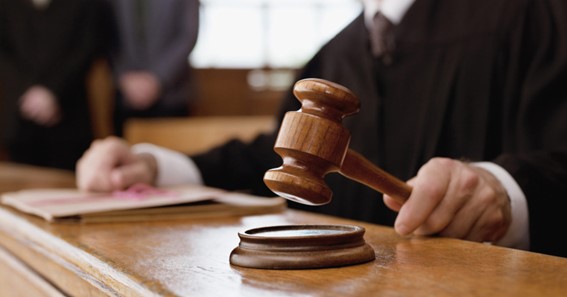Are you curious to know what is a fact witness? You have come to the right place as I am going to tell you everything about a fact witness in a very simple explanation. Without further discussion let’s begin to know what is a fact witness?
Legal proceedings rely on the testimony and evidence presented by witnesses to establish facts and support claims. Within the legal system, there are different types of witnesses, each with a specific role to play. In this blog, we will explore the concept of a fact witness, their significance in legal proceedings, and the responsibilities they hold in providing firsthand information.
What Is A Fact Witness?
A fact witness, also known as a lay witness or an eyewitness, is an individual who possesses firsthand knowledge about a specific event or circumstance relevant to a legal case. Fact witnesses are called upon to provide testimony based on their personal observations, experiences, or knowledge related to the matter at hand. Unlike expert witnesses who offer specialized knowledge, fact witnesses provide factual information based on their direct involvement in or observation of the events in question.
Responsibilities And Duties
- Providing Factual Testimony: The primary responsibility of a fact witness is to provide accurate and truthful testimony. This involves recounting the events or circumstances they witnessed or have knowledge of, without speculation or personal opinions. The testimony of a fact witness serves to present the facts as they occurred, assisting the trier of fact (e.g., judge or jury) in reaching a decision.
- Presenting Firsthand Knowledge: Fact witnesses are expected to share information based on their personal experiences or observations. Their role is to provide objective accounts of what they saw, heard, or experienced, without embellishment or bias. This firsthand knowledge can be crucial in establishing the sequence of events, determining liability, or corroborating other evidence.
- Answering Questions: Fact witnesses are subjected to examination and cross-examination by attorneys from both sides of the case. They must be prepared to answer questions truthfully and to the best of their recollection. It is important for fact witnesses to listen carefully to the questions asked and provide clear and concise responses.
- Remaining Impartial: Fact witnesses are not advocates for any particular party involved in the legal proceedings. Their role is to provide an unbiased account of the facts they have witnessed or know. It is essential for fact witnesses to maintain their neutrality and refrain from offering subjective opinions or speculations.
Significance In Legal Proceedings
Fact witnesses play a crucial role in legal proceedings by presenting firsthand information that can help establish the truth and provide clarity on key events. Their testimony can serve to corroborate or challenge other evidence presented in court, contribute to the overall credibility of a case, and assist the trier of fact in making informed decisions.
Fact witnesses are particularly valuable in cases where physical evidence is limited or inconclusive. Their direct observations and experiences can shed light on critical details, fill gaps in the narrative, or challenge alternative interpretations.
Conclusion
Fact witnesses are essential participants in legal proceedings, offering firsthand accounts of events, circumstances, or facts related to a case. Their responsibility is to provide accurate, unbiased, and objective testimony based on their personal knowledge or observations. Fact witnesses bring an element of truth and authenticity to the courtroom, assisting the trier of fact in reaching informed decisions. By presenting their accounts, fact witnesses contribute to the pursuit of justice and the fair resolution of legal disputes.
Learn more fun facts on Cricfor.
FAQ
What Is An Example Of A Fact Witness?
An expert, such as a physician, may be called as a fact witness in areas that are outside his or her expertise. For example, a physician may have witnessed an automobile accident. A physician may be a fact witness when a case involves a person whom the physician has treated.
What Is The Difference Between A Lay Witness And A Fact Witness?
Lay Witness Testimony
Generally speaking, the law divides witnesses into two categories: Fact Witnesses and Opinion Witnesses. Fact witnesses, or lay witnesses, testify about their firsthand knowledge: what they heard, saw, said, or did. Fact witnesses are often closely related to the case in some way.
What Are The Different Types Of Fact Witnesses?
As a fact witness, the four typical roles within which you might commonly enter into some form of litigation are as 1) an observer, 2) a treater, 3) a plaintiff, and 4) a defendant. Some representative examples of these fact witness roles follow.
Can An Expert Be A Fact Witness?
Sometimes, a fact witness isn’t just an average person who happened to be nearby when the events the case is based around occurred. They can be an expert in their field, and still have first-hand experience with the events that took place.
I Have Covered All The Following Queries And Topics In The Above Article
What Is A Fact Witness Deposition
What Is A Material (Fact) Witness
In Litigation, What Is A Fact Witness?
What Is A Forensic Accountant An Expert Witness Or A Fact Witness
What Is A Fact Witness Under Arizona Law
What Is A Fact Witness Compared To A Lay Opinion
What Is The Difference Between A Fact Witness And An Expert Witness
Fact Witness Vs Expert Witness
Fact Witness Compensation
Lay Witness
What Is A Expert Witness
Can A Fact Witness Be An Expert Witness
Hybrid Fact Expert Witness
At Trial As A Fact Or Expert Witness, What Must You Always Remember About Your Testimony?
What Is The Difference Between A Fact Witness And An
What Is A Fact Witness
What is the main difference between a fact witness and an expert witness
What is a fact witness?

